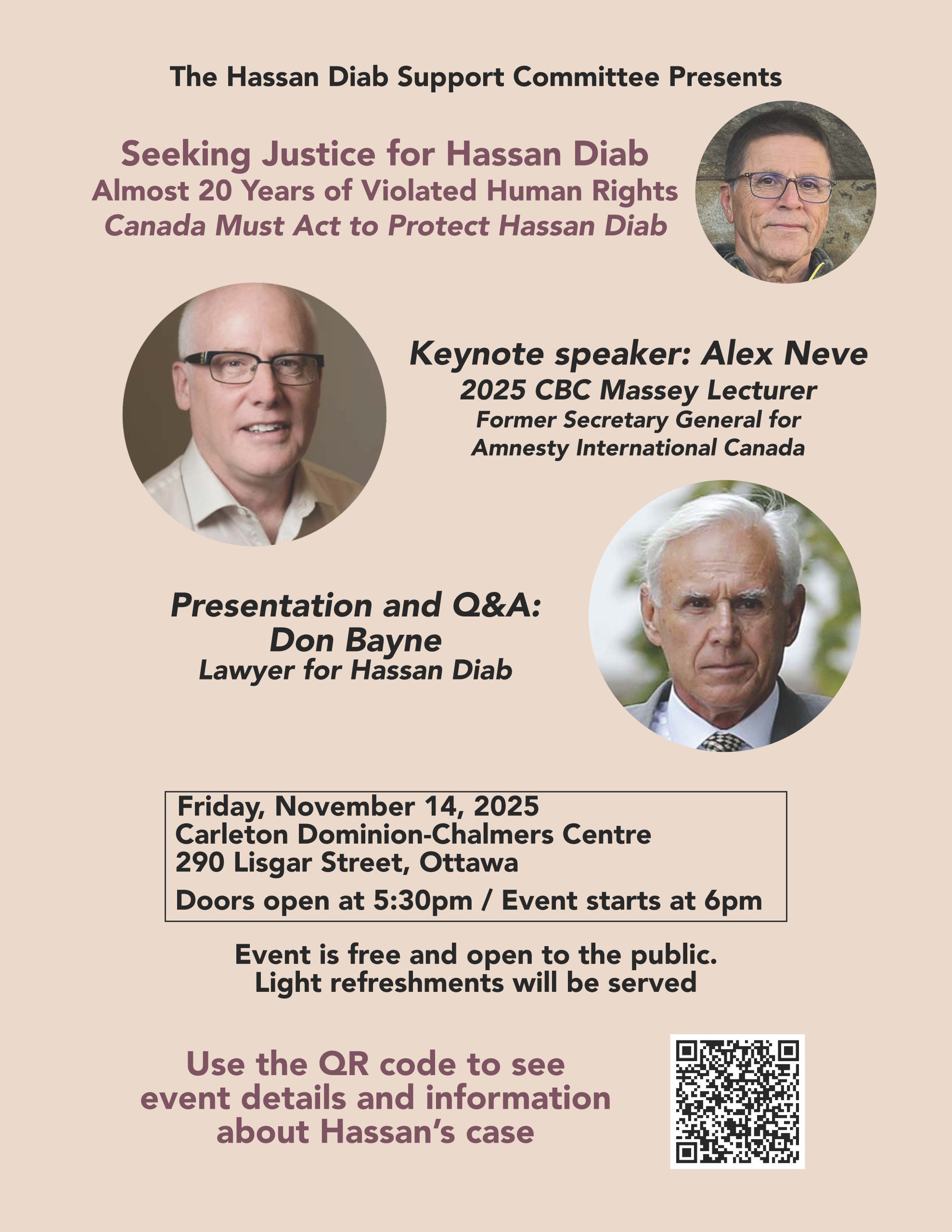BACKGROUND
Dr. Hassan Diab is a Canadian academic who has endured nearly two decades of injustice and imprisonment for a crime he did not commit. His ordeal began in 2007 when, after teaching a class at the University of Ottawa, he was approached by a reporter from the French newspaper Le Figaro. The journalist asked whether he was aware that French authorities accused him of involvement in a 1980 bombing outside a synagogue in Paris. Hassan was astonished and denied any connection, explaining that it must be a case of mistaken identity, as “Hassan Diab” is a common name.
Soon after, he began noticing unknown individuals following him, and someone even attempted to break into his home. Although he reported these incidents to the Ottawa police, the harassment continued.
On November 13, 2008, the RCMP arrested Dr. Diab at France’s request in connection with the 1980 bombing. He was jailed in Ottawa and subjected to an extradition process.
On June 6, 2011, Justice Robert Maranger of the Ontario Superior Court committed Dr. Diab for extradition to France. His decision was based on deeply flawed and widely criticized handwriting analysis that compared Dr. Diab’s handwriting to five block-lettered words on a hotel registration card from 1980. Justice Maranger described the handwriting analysis as “convoluted,” “very confusing,” and based on “conclusions that are suspect.” He further noted that France had presented “a weak case” and that “the prospects of conviction in the context of a fair trial seem unlikely.” However, under Canada’s Extradition Act—with its limited protections—he had no choice but to order Dr. Diab’s extradition.
The suffering that followed is well known. After the Supreme Court of Canada declined to hear his appeal, Dr. Diab was extradited to France on November 14, 2014. He spent more than three years in a French prison, mostly in solitary confinement, separated from his wife and young children, and living with constant fear and uncertainty about his future.
After an extensive investigation, two senior French investigative judges—Jean-Marc Herbaut and Richard Foltzer—concluded that there was no evidence to justify bringing Dr. Diab to trial. In January 2018, after 38 months in detention without charge, he was finally released and allowed to return home to his family in Canada.
However, on April 21, 2023, Dr. Diab’s long struggle for justice suffered a serious setback. The Paris Court of Assize overturned the earlier findings of the investigative judges and convicted him in absentia after an unfair trial. The trial has been widely condemned for relying on unsourced “intelligence,” ignoring exculpatory evidence, and admitting unreliable testimony. Legal experts and human rights advocates have expressed grave concern about the fairness of the trial.
Hassan’s lawyer in France remarked that after decades, “the Court [of Assize] is clinging on to Hassan Diab because of the judges’ fear of being accused of laxity in finding those responsible for the 1980 attack.” In Canada, his lawyer Donald Bayne called it a “political trial,” emphasizing that “the victims deserve a trial. What they don’t deserve is a scapegoat or a miscarriage of justice.”
After nearly twenty years of legal and personal turmoil, Dr. Diab and his family continue to live with uncertainty and injustice. The Canadian government has yet to commit to protecting him from a second extradition request, leaving them in ongoing fear and distress.
It is time for Canada to take a principled stand. The government must unequivocally reject any future extradition of Hassan Diab and reaffirm its commitment to justice, human rights, and the protection of its citizens from wrongful persecution.

